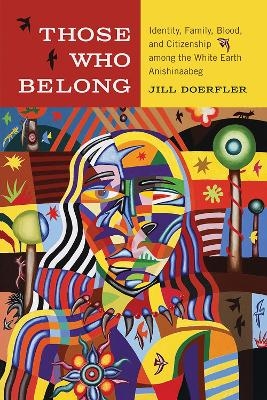
Those Who Belong
Identity, Family, Blood, and Citizenship among the White Earth Anishinaabeg
Seiten
2015
Michigan State University Press (Verlag)
978-1-61186-169-3 (ISBN)
Michigan State University Press (Verlag)
978-1-61186-169-3 (ISBN)
Despite the central role blood quantum played in political formations of American Indian identity in the late nineteenth and twentieth centuries, there are few studies that explore how tribal nations have contended with this transformation of tribal citizenship.
Those Who Belong explores how White Earth Anishinaabeg understood identity and blood quantum in the early twentieth century, how it was employed and manipulated by the U.S. government, how it came to be the sole requirement for tribal citizenship in 1961, and how a contemporary effort for constitutional reform sought a return to citizenship criteria rooted in Anishinaabe kinship, replacing the blood quantum criteria with lineal descent.
Those Who Belong illustrates the ways in which Anishinaabeg of White Earth negotiated multifaceted identities, both before and after the introduction of blood quantum as a marker of identity and as the sole requirement for tribal citizenship.
Doerfler’s research reveals that Anishinaabe leaders resisted blood quantum as a tribal citizenship requirement for decades before acquiescing to federal pressure. Constitutional reform efforts in the twenty-first century brought new life to this longstanding debate and led to the adoption of a new constitution, which requires lineal descent for citizenship.
Those Who Belong explores how White Earth Anishinaabeg understood identity and blood quantum in the early twentieth century, how it was employed and manipulated by the U.S. government, how it came to be the sole requirement for tribal citizenship in 1961, and how a contemporary effort for constitutional reform sought a return to citizenship criteria rooted in Anishinaabe kinship, replacing the blood quantum criteria with lineal descent.
Those Who Belong illustrates the ways in which Anishinaabeg of White Earth negotiated multifaceted identities, both before and after the introduction of blood quantum as a marker of identity and as the sole requirement for tribal citizenship.
Doerfler’s research reveals that Anishinaabe leaders resisted blood quantum as a tribal citizenship requirement for decades before acquiescing to federal pressure. Constitutional reform efforts in the twenty-first century brought new life to this longstanding debate and led to the adoption of a new constitution, which requires lineal descent for citizenship.
| Erscheint lt. Verlag | 30.7.2015 |
|---|---|
| Reihe/Serie | American Indian Studies |
| Verlagsort | East Lansing, MI |
| Sprache | englisch |
| Maße | 152 x 229 mm |
| Gewicht | 318 g |
| Themenwelt | Geisteswissenschaften ► Geschichte ► Regional- / Ländergeschichte |
| Geschichte ► Teilgebiete der Geschichte ► Kulturgeschichte | |
| Recht / Steuern ► Arbeits- / Sozialrecht ► Sozialrecht | |
| Recht / Steuern ► EU / Internationales Recht | |
| Sozialwissenschaften ► Ethnologie | |
| Sozialwissenschaften ► Soziologie | |
| ISBN-10 | 1-61186-169-1 / 1611861691 |
| ISBN-13 | 978-1-61186-169-3 / 9781611861693 |
| Zustand | Neuware |
| Haben Sie eine Frage zum Produkt? |
Mehr entdecken
aus dem Bereich
aus dem Bereich
der stille Abschied vom bäuerlichen Leben in Deutschland
Buch | Hardcover (2023)
C.H.Beck (Verlag)
23,00 €
eine Geschichte der Welt in 99 Obsessionen
Buch | Hardcover (2023)
Klett-Cotta (Verlag)
22,00 €


